Discover The 365 Days of Astronomy
The 365 Days of Astronomy

The 365 Days of Astronomy
Author: 365DaysOfAstronomy.org
Subscribed: 4,461Played: 215,808Subscribe
Share
© 2009
Description
The 365 Days of Astronomy podcast launched in 2009 as part of the International Year of Astronomy. This community podcast continues to bring you day after day of content across the years. Everyday, a new voice, helping you see the universe we share in a new way. This show is managed by Avivah Yamani, edited by Richard Drumm. This podcast is funded through Patreon.com/CosmoQuestX and produced out of the Planetary Science Institute.
2159 Episodes
Reverse
Hosted by Steve Nerlich. Dear Cheap Astronomy – What is the right message to send to the aliens? Keen listeners may be familiar with Cheap Astronomy's ongoing despair at Earth's lacklustre attempts at communication with the wider Universe. A few episodes back we ran through a history of deliberate communications to date, about 90 per cent of which have been music – well mostly digitized and some analog radio transmissions of music. Dear Cheap Astronomy – Can we drill through the ice and find life on Europa? Firstly, there are quite a few moons out there with suspected subsurface oceans – Ganymede and Calisto around Jupiter, Enceladus and Dione around Saturn – there's even a suspicion that Ceres, an asteroid rather than a moon, may have one. Everyone gets excited about Europa, because it's hot. We've added a new way to donate to 365 Days of Astronomy to support editing, hosting, and production costs. Just visit: https://www.patreon.com/365DaysOfAstronomy and donate as much as you can! Share the podcast with your friends and send the Patreon link to them too! Every bit helps! Thank you! ------------------------------------ Do go visit http://www.redbubble.com/people/CosmoQuestX/shop for cool Astronomy Cast and CosmoQuest t-shirts, coffee mugs and other awesomeness! http://cosmoquest.org/Donate This show is made possible through your donations. Thank you! (Haven't donated? It's not too late! Just click!) ------------------------------------ The 365 Days of Astronomy Podcast is produced by the Planetary Science Institute. http://www.psi.edu Visit us on the web at 365DaysOfAstronomy.org or email us at info@365DaysOfAstronomy.org.
Hosted by Tony Darnell. From Dec 19, 2019. Get Stellina Telescope Here (affiliate link): http://bit.ly/2WJrPzr Here are my thoughts on a brand new telescope for amateur astronomers that was released by Vaonis, a French company that has done something remarkable with the Stellina telescope, they've created a fully-automated, self-contained optical system that is unlike anything I've seen before. This telescope is a real paradigm shift for amateur astronomy, never before has getting into the hobby been easier. We've added a new way to donate to 365 Days of Astronomy to support editing, hosting, and production costs. Just visit: https://www.patreon.com/365DaysOfAstronomy and donate as much as you can! Share the podcast with your friends and send the Patreon link to them too! Every bit helps! Thank you! ------------------------------------ Do go visit http://www.redbubble.com/people/CosmoQuestX/shop for cool Astronomy Cast and CosmoQuest t-shirts, coffee mugs and other awesomeness! http://cosmoquest.org/Donate This show is made possible through your donations. Thank you! (Haven't donated? It's not too late! Just click!) ------------------------------------ The 365 Days of Astronomy Podcast is produced by the Planetary Science Institute. http://www.psi.edu Visit us on the web at 365DaysOfAstronomy.org or email us at info@365DaysOfAstronomy.org.
https://www.youtube.com/watch?v=vSVS2x-8eG4 Hosted by: Fraser Cain and Dr. Pamela L. Gay Streamed live on Oct 20, 2025. New instruments bring new mysteries, and when James Webb came on line it uncovered a collection of strange, compact, bright objects shifted deeply into the red end of the spectrum. These were dubbed "Little red dots" or LRDs. And the astronomical community continues to puzzle over what they are. When JWST first peered into the distant past, it discovered the early universe had a rash of little red dots. Their existence just 450 million years after the big bang meant either galaxies were forming way faster than anyone predicted, or something unimagined had been found. This show is supported through people like you on Patreon.com/AstronomyCast In this episode, we'd like to thank: Andrew Poelstra, BogieNet, Brian Cagle, Burry Gowen, David, David Rossetter, David Truog, Ed, Gerhard Schwarzer, Jason Kwong, Jeanette Wink, Michael Purcell, Olger, Sergio Sancevero, Sergey Manouilov, Siggi Kemmler, Stephen Veit We've added a new way to donate to 365 Days of Astronomy to support editing, hosting, and production costs. Just visit: https://www.patreon.com/365DaysOfAstronomy and donate as much as you can! Share the podcast with your friends and send the Patreon link to them too! Every bit helps! Thank you! ------------------------------------ Do go visit http://www.redbubble.com/people/CosmoQuestX/shop for cool Astronomy Cast and CosmoQuest t-shirts, coffee mugs and other awesomeness! http://cosmoquest.org/Donate This show is made possible through your donations. Thank you! (Haven't donated? It's not too late! Just click!) ------------------------------------ The 365 Days of Astronomy Podcast is produced by the Planetary Science Institute. http://www.psi.edu Visit us on the web at 365DaysOfAstronomy.org or email us at info@365DaysOfAstronomy.org.
Dr. Al Grauer hosts. Dr. Albert D. Grauer ( @Nmcanopus ) is an observational asteroid hunting astronomer. Dr. Grauer retired from the University of Arkansas at Little Rock in 2006. travelersinthenight.org From July 2025. Today's 2 topics: - Recently, my Grandsons, Dane and Hank joined our asteroid hunting team at the Catalina Sky Survey 60 inch telescope on Mt. Lemmon. The most interesting of our discoveries, 2017 KJ32 is only 16 feet in diameter, orbits the Sun once every 315 days, and can come closer to us than the communications satellites. - My Catalina Sky Survey teammate Carson Fuls discovered a 33 foot diameter asteroid which has about a 1.1% chance of impacting the Earth on 569 encounters with our planet between 2045 and 2116. Its name is 2017 LD. It is on the list of the most likely objects to strike the Earth in the next hundred years as reported on NASA's Sentry Earth Impact Monitoring table. We've added a new way to donate to 365 Days of Astronomy to support editing, hosting, and production costs. Just visit: https://www.patreon.com/365DaysOfAstronomy and donate as much as you can! Share the podcast with your friends and send the Patreon link to them too! Every bit helps! Thank you! ------------------------------------ Do go visit http://www.redbubble.com/people/CosmoQuestX/shop for cool Astronomy Cast and CosmoQuest t-shirts, coffee mugs and other awesomeness! http://cosmoquest.org/Donate This show is made possible through your donations. Thank you! (Haven't donated? It's not too late! Just click!) ------------------------------------ The 365 Days of Astronomy Podcast is produced by the Planetary Science Institute. http://www.psi.edu Visit us on the web at 365DaysOfAstronomy.org or email us at info@365DaysOfAstronomy.org.
From July 31, 2024. Hosted by Dr. Jacinta Delhaize, Dr. Tshiamiso Makwela & Dr. Daniel Cunnama. In this double feature episode, Jacinta interviews two amazing astronomers at the SARAO conference (South African Radio Astronomical Observatory). Dr. Mpati Ramotsoku is a radio astrophysicist from South Africa. In the episode she discusses her journey from studying in the Netherlands to working in Italy at the Italian National Institute of Astrophysics in Cali, and eventually returning to South Africa as a research associate at Rhodes University. She delves into her research on how galaxies evolve by studying hydrogen gas in galaxies and the environmental effects on galaxy evolution, such as ram pressure stripping. Mpati also shares her discovery of new filaments in galaxies through images from the MeerKAT Telescope, a finding which has garnered international attention. Dr. Emanuel Proven Adzuri is a Ghanaian astronomer at the Ghana Space Science and Technology Institute and the Ghana Radio Astronomy Observatory. In this episode he shares his background and journey in astronomy. Emanuel discusses his education in computational engineering and astronomy that led to a groundbreaking PhD project on space lasers, specifically focusing on the periodicity of methanol masers in star-forming regions. Emanuel also discusses the advancements in Ghana's astronomy infrastructure, including the transformation of a decommissioned telecom dish into a 32-meter radio telescope. We've added a new way to donate to 365 Days of Astronomy to support editing, hosting, and production costs. Just visit: https://www.patreon.com/365DaysOfAstronomy and donate as much as you can! Share the podcast with your friends and send the Patreon link to them too! Every bit helps! Thank you! ------------------------------------ Do go visit http://www.redbubble.com/people/CosmoQuestX/shop for cool Astronomy Cast and CosmoQuest t-shirts, coffee mugs and other awesomeness! http://cosmoquest.org/Donate This show is made possible through your donations. Thank you! (Haven't donated? It's not too late! Just click!) ------------------------------------ The 365 Days of Astronomy Podcast is produced by the Planetary Science Institute. http://www.psi.edu Visit us on the web at 365DaysOfAstronomy.org or email us at info@365DaysOfAstronomy.org.
From April 13, 2021. A new study examined the effects of recent increases in the number of space objects orbiting Earth and found that the proliferation of satellites contributes to a nearly ten percent increase over natural lighting of the night sky. Plus, Mars, Uranus, Neptune, ancient Earth, volcanoes, and our weekly What's Up segment. We've added a new way to donate to 365 Days of Astronomy to support editing, hosting, and production costs. Just visit: https://www.patreon.com/365DaysOfAstronomy and donate as much as you can! Share the podcast with your friends and send the Patreon link to them too! Every bit helps! Thank you! ------------------------------------ Do go visit http://www.redbubble.com/people/CosmoQuestX/shop for cool Astronomy Cast and CosmoQuest t-shirts, coffee mugs and other awesomeness! http://cosmoquest.org/Donate This show is made possible through your donations. Thank you! (Haven't donated? It's not too late! Just click!) ------------------------------------ The 365 Days of Astronomy Podcast is produced by the Planetary Science Institute. http://www.psi.edu Visit us on the web at 365DaysOfAstronomy.org or email us at info@365DaysOfAstronomy.org.
https://www.youtube.com/watch?v=D6vU3-LGrgM From Jul 11, 2016. Stars can spin faster or slower than the Sun. What's the fastest that's ever been discovered, and what's the fastest speed you can have before they tear themselves apart? Everything in the Universe is spinning. Spinning planets and their spinning moons orbit around spinning stars, which orbit spinning galaxies. It's spinning all the way down. Consider that fiery ball in the sky, the Sun. Like all stars, our Sun rotates on its axis. You can't tell because staring at the Sun long enough will permanently damage your eyeballs. Instead you can use a special purpose solar telescope to observe sunspots and other features on the surface of the Sun. Created by: Fraser Cain and Jason Harmer Edited by: Chad Weber Music: Left Spine Down - "X-Ray" We've added a new way to donate to 365 Days of Astronomy to support editing, hosting, and production costs. Just visit: https://www.patreon.com/365DaysOfAstronomy and donate as much as you can! Share the podcast with your friends and send the Patreon link to them too! Every bit helps! Thank you! ------------------------------------ Do go visit http://www.redbubble.com/people/CosmoQuestX/shop for cool Astronomy Cast and CosmoQuest t-shirts, coffee mugs and other awesomeness! http://cosmoquest.org/Donate This show is made possible through your donations. Thank you! (Haven't donated? It's not too late! Just click!) ------------------------------------ The 365 Days of Astronomy Podcast is produced by the Planetary Science Institute. http://www.psi.edu Visit us on the web at 365DaysOfAstronomy.org or email us at info@365DaysOfAstronomy.org.
Those tricky next steps. Dear Cheap Astronomy – Could war get us into space? There's been a long-running dialogue here at Cheap Astronomy about what economic drivers might transform us into a proper spacefaring species with Moon bases, Mars bases and all that. And well, its been hard to think what economic drivers really might work. Space is hard and it's also darned expensive. Tourism could be a driver, after all there has been a bit of millionaire tourism happening, mostly just flights above the atmosphere. Dear Cheap Astronomy – What is new space? You may have heard people talk about – old space and new space. Old space is like NASA pouring billions into the slow plodding development of huge one-off projects like the Space Launch System and the James Webb Space Telescope where they operate with extreme risk aversion, absolutely determined that absolutely nothing must go wrong. New space is like Space X, where they quickly launch prototypes and when those prototypes blow up they have the data to explain why so the next ones don't have that flaw and if they blow up then they get rid of those flaws as well, and so on. We've added a new way to donate to 365 Days of Astronomy to support editing, hosting, and production costs. Just visit: https://www.patreon.com/365DaysOfAstronomy and donate as much as you can! Share the podcast with your friends and send the Patreon link to them too! Every bit helps! Thank you! ------------------------------------ Do go visit http://www.redbubble.com/people/CosmoQuestX/shop for cool Astronomy Cast and CosmoQuest t-shirts, coffee mugs and other awesomeness! http://cosmoquest.org/Donate This show is made possible through your donations. Thank you! (Haven't donated? It's not too late! Just click!) ------------------------------------ The 365 Days of Astronomy Podcast is produced by the Planetary Science Institute. http://www.psi.edu Visit us on the web at 365DaysOfAstronomy.org or email us at info@365DaysOfAstronomy.org.
Why did we develop the International Space Station in the first place? What have we learned in its 25+ years of operation? When is it coming down, and why? And what's coming up next? I discuss these questions and more in today's Ask a Spaceman! Support the show: http://www.patreon.com/pmsutter All episodes: http://www.AskASpaceman.com Watch on YouTube: http://www.youtube.com/PaulMSutter Read a book: https://www.pmsutter.com/books Keep those questions about space, science, astronomy, astrophysics, physics, and cosmology coming to #AskASpaceman for COMPLETE KNOWLEDGE OF TIME AND SPACE! Big thanks to my top Patreon supporters this month: Justin G, Chris L, Alberto M, Duncan M, Corey D, Michael P, Naila, Sam R, Joshua, Scott M, Scott M, Louis M, John W, Alexis, Gilbert M, Rob W, Jessica M, Jules R, Jim L, David S, Scott R, Heather, Mike S, Pete H, Steve S, Lisa R, Kevin B, Aileen G, Steven W, Deb A, Michael J, Phillip L, Steven B, Mark R, Alan B, Craig B, Mark F, Richard K, Stace J, Stephen J, Joe R, David P, Justin, Sean M, Tracy F, Ella Finkel, Thomas K, James C, Syamkumar M, Homer V, Mark D, Bruce A, Tim Z, Linda C, The Tired Jedi, Lode D, Bob C, Red B, Stephen A, James R, Robert O, Lynn D, Allen E, Michael S, Reinaldo A, Sheryl, David W, Chris, Michael S, Erlend A, James D, Larry D, Karl W, Den K, Tom B, Edward K, Catherine B, John M, Craig M, Scott K, Vivek D, Barbara C, Brad, Azra K, and Steve R! Hosted by Dr. Paul M. Sutter. We've added a new way to donate to 365 Days of Astronomy to support editing, hosting, and production costs. Just visit: https://www.patreon.com/365DaysOfAstronomy and donate as much as you can! Share the podcast with your friends and send the Patreon link to them too! Every bit helps! Thank you! ------------------------------------ Do go visit http://www.redbubble.com/people/CosmoQuestX/shop for cool Astronomy Cast and CosmoQuest t-shirts, coffee mugs and other awesomeness! http://cosmoquest.org/Donate This show is made possible through your donations. Thank you! (Haven't donated? It's not too late! Just click!) ------------------------------------ The 365 Days of Astronomy Podcast is produced by the Planetary Science Institute. http://www.psi.edu Visit us on the web at 365DaysOfAstronomy.org or email us at info@365DaysOfAstronomy.org.
https://www.youtube.com/watch?v=Oi72aaDhl0A Hosted by: Fraser Cain and Dr. Pamela L. Gay Streamed live on Oct 13, 2025. So it's been decades since we've seen a bright comet in the sky. And actually there was a pair — Hale-Bopp and Hyakutake. And then, silence! And unmet promises by the Universe to give us a bright comet. Comets are unpredictable, and they arrive precisely when they intend to. Is it time again for a bright comet? If you asked us in January if 2025 was going to have any outstanding comets would fly through the Solar System, we would have (and we did) say "no." And we were wrong. Comets are fickle, unpredictable, and like to do exactly what we didn't predict. This show is supported through people like you on Patreon.com/AstronomyCast In this episode, we'd like to thank: Andrew Poelstra, BogieNet, Brian Cagle, Burry Gowen, David, David Rossetter, David Truog, Ed, Gerhard Schwarzer, Jason Kwong, Jeanette Wink, Michael Purcell, Olger, Sergio Sancevero, Sergey Manouilov, Siggi Kemmler, Stephen Veit Universe Today: All The Real Science of 3I/ATLAS. The Ultimate Guide https://www.youtube.com/watch?v=hZWKAxFeNp8 We've added a new way to donate to 365 Days of Astronomy to support editing, hosting, and production costs. Just visit: https://www.patreon.com/365DaysOfAstronomy and donate as much as you can! Share the podcast with your friends and send the Patreon link to them too! Every bit helps! Thank you! ------------------------------------ Do go visit http://www.redbubble.com/people/CosmoQuestX/shop for cool Astronomy Cast and CosmoQuest t-shirts, coffee mugs and other awesomeness! http://cosmoquest.org/Donate This show is made possible through your donations. Thank you! (Haven't donated? It's not too late! Just click!) ------------------------------------ The 365 Days of Astronomy Podcast is produced by the Planetary Science Institute. http://www.psi.edu Visit us on the web at 365DaysOfAstronomy.org or email us at info@365DaysOfAstronomy.org.
Dr. Al Grauer hosts. Dr. Albert D. Grauer ( @Nmcanopus ) is an observational asteroid hunting astronomer. Dr. Grauer retired from the University of Arkansas at Little Rock in 2006. travelersinthenight.org From June 2025. Today's 2 topics: - When we find a planet which appears to have the chemical signs of living organisms in its atmosphere, the desire to take a close up look at it will be hard to contain. In a Scientific American article, Lee Billings describes Yuri Milner's 100 million dollar project "Breakthrough Starshot" which has been created to leap frog our current rocket technology's extremely long travel times to nearby planets. - The mystery of Tabby's star began to unfold when in 2015 Dr. Tabetha S. Boyajian of Louisiana State University and her team published a paper describing the irregular dips in the light output of what otherwise would seem to be a garden variety star over the period 2009 to 2013. Subsequently a list of proposed explanations include swarms of comets, large asteroids, a debris disk, and even a massive alien megastructure. We've added a new way to donate to 365 Days of Astronomy to support editing, hosting, and production costs. Just visit: https://www.patreon.com/365DaysOfAstronomy and donate as much as you can! Share the podcast with your friends and send the Patreon link to them too! Every bit helps! Thank you! ------------------------------------ Do go visit http://www.redbubble.com/people/CosmoQuestX/shop for cool Astronomy Cast and CosmoQuest t-shirts, coffee mugs and other awesomeness! http://cosmoquest.org/Donate This show is made possible through your donations. Thank you! (Haven't donated? It's not too late! Just click!) ------------------------------------ The 365 Days of Astronomy Podcast is produced by the Planetary Science Institute. http://www.psi.edu Visit us on the web at 365DaysOfAstronomy.org or email us at info@365DaysOfAstronomy.org.
Episode 10. How to become a citizen scientist! "ASTROMAN: the Dark Sky Guardian" is a podcast channel that aims to explore popular science in multiple disciplines and research on interdisciplinary approaches, such as sustainability, dark-sky protection, astrophotography, space exploration, astronomy innovation, inclusive science communication, and STEAM Education by integrating science and arts. Exodus CL Sit, also known as the ASTROMAN, is a transmedia astronomy educator, popular science author, STEAM educator, and science communicator in Hong Kong. He is recently the National Astronomy Education Coordinator (Chair of Hong Kong, China) of the International Astronomical Union and President of Starrix. He was also an International Committee Member of the Dark Sky International, regularly organizing public lectures at the Hong Kong Space Museum and the Hong Kong Science Museum. He was also the author of a popular science book "Decoding the Starry Night: A Guide to Stargazing and Astrophotography". We've added a new way to donate to 365 Days of Astronomy to support editing, hosting, and production costs. Just visit: https://www.patreon.com/365DaysOfAstronomy and donate as much as you can! Share the podcast with your friends and send the Patreon link to them too! Every bit helps! Thank you! ------------------------------------ Do go visit http://www.redbubble.com/people/CosmoQuestX/shop for cool Astronomy Cast and CosmoQuest t-shirts, coffee mugs and other awesomeness! http://cosmoquest.org/Donate This show is made possible through your donations. Thank you! (Haven't donated? It's not too late! Just click!) ------------------------------------ The 365 Days of Astronomy Podcast is produced by the Planetary Science Institute. http://www.psi.edu Visit us on the web at 365DaysOfAstronomy.org or email us at info@365DaysOfAstronomy.org.
From Aug 31, 2020. Join us today as we examine observations for dual quasars in the process of merging and a star being torn apart by its supermassive black hole. Plus, Hubble data used to map a halo around the Andromeda galaxy. We've added a new way to donate to 365 Days of Astronomy to support editing, hosting, and production costs. Just visit: https://www.patreon.com/365DaysOfAstronomy and donate as much as you can! Share the podcast with your friends and send the Patreon link to them too! Every bit helps! Thank you! ------------------------------------ Do go visit http://www.redbubble.com/people/CosmoQuestX/shop for cool Astronomy Cast and CosmoQuest t-shirts, coffee mugs and other awesomeness! http://cosmoquest.org/Donate This show is made possible through your donations. Thank you! (Haven't donated? It's not too late! Just click!) ------------------------------------ The 365 Days of Astronomy Podcast is produced by the Planetary Science Institute. http://www.psi.edu Visit us on the web at 365DaysOfAstronomy.org or email us at info@365DaysOfAstronomy.org.
Hosted by Chris Beckett & Shane Ludtke, two amateur astronomers in Saskatchewan. actualastronomy@gmail.com The Actual Astronomy Podcast Episode 503 presents M55, Helix Nebula and other Observations. In this episode we talk about a long list of observing targets from the globular star cluster M55, the Helix planetary nebula and other objects. We read a listener who emails us a sky tour for the late summer as well. We've added a new way to donate to 365 Days of Astronomy to support editing, hosting, and production costs. Just visit: https://www.patreon.com/365DaysOfAstronomy and donate as much as you can! Share the podcast with your friends and send the Patreon link to them too! Every bit helps! Thank you! ------------------------------------ Do go visit http://www.redbubble.com/people/CosmoQuestX/shop for cool Astronomy Cast and CosmoQuest t-shirts, coffee mugs and other awesomeness! http://cosmoquest.org/Donate This show is made possible through your donations. Thank you! (Haven't donated? It's not too late! Just click!) ------------------------------------ The 365 Days of Astronomy Podcast is produced by the Planetary Science Institute. http://www.psi.edu Visit us on the web at 365DaysOfAstronomy.org or email us at info@365DaysOfAstronomy.org.
https://www.youtube.com/watch?v=qWfkW2y-hAQ From Oct 15, 2019. Even as the first rockets were launched into space decades ago, aerospace knew it was a wasteful process. Rocket stages, motors, and complex equipment crashed into the ocean or burned up in the Earth's atmosphere. Could spaceplanes bring the costs down? Flying to orbit with a combination of jet engines and rockets and then safely re-enter the Earth's atmosphere again. Single-stage to orbit spacecraft and spaceplanes have always seemed out of reach, and actually not that practical. But what about a two-stage, fully reusable spaceplane? Exodus Space Corporation has been secretly working on this concept for a decade now, and what they're proposing is pretty revolutionary. We've added a new way to donate to 365 Days of Astronomy to support editing, hosting, and production costs. Just visit: https://www.patreon.com/365DaysOfAstronomy and donate as much as you can! Share the podcast with your friends and send the Patreon link to them too! Every bit helps! Thank you! ------------------------------------ Do go visit http://www.redbubble.com/people/CosmoQuestX/shop for cool Astronomy Cast and CosmoQuest t-shirts, coffee mugs and other awesomeness! http://cosmoquest.org/Donate This show is made possible through your donations. Thank you! (Haven't donated? It's not too late! Just click!) ------------------------------------ The 365 Days of Astronomy Podcast is produced by the Planetary Science Institute. http://www.psi.edu Visit us on the web at 365DaysOfAstronomy.org or email us at info@365DaysOfAstronomy.org.
From October 2023. Hosted by Tony Darnell. The search for life on other worlds is, to say the least, a daunting and overwhelming task. We've been searching for only about one human generation and have yet to find anything in our own solar system, let alone the vast expanse of our galaxy. To increase our chances of finding life on other planets, a systematic approach needs to be adopted, one that applies reasonable assumptions that maximize our success. So, an important question becomes, where should we point our telescopes? We've added a new way to donate to 365 Days of Astronomy to support editing, hosting, and production costs. Just visit: https://www.patreon.com/365DaysOfAstronomy and donate as much as you can! Share the podcast with your friends and send the Patreon link to them too! Every bit helps! Thank you! ------------------------------------ Do go visit http://www.redbubble.com/people/CosmoQuestX/shop for cool Astronomy Cast and CosmoQuest t-shirts, coffee mugs and other awesomeness! http://cosmoquest.org/Donate This show is made possible through your donations. Thank you! (Haven't donated? It's not too late! Just click!) ------------------------------------ The 365 Days of Astronomy Podcast is produced by the Planetary Science Institute. http://www.psi.edu Visit us on the web at 365DaysOfAstronomy.org or email us at info@365DaysOfAstronomy.org.
https://www.youtube.com/watch?v=mCqRhiApwMQ Season 19 Hosted by: Fraser Cain and Dr. Pamela L. Gay Streamed live on Oct 6, 2025. You can only describe a black hole by its mass and its spin. And maybe it's charge. But allow us to propose a new criteria: the personal experience. Some black holes have seen things… Experienced the laws of physics at their most extreme. And today we'll tell their stories. The more of the sky we observe, the more bizarre situations we find black holes in. Let's explore! This show is supported through people like you on Patreon.com/AstronomyCast In this episode, we'd like to thank: Andrew Poelstra, BogieNet, Brian Cagle, Burry Gowen, David, David Rossetter, David Truog, Ed, Gerhard Schwarzer, Jason Kwong, Jeanette Wink, Michael Purcell, Olger, Sergio Sancevero, Sergey Manouilov, Siggi Kemmler, Stephen Veit We've added a new way to donate to 365 Days of Astronomy to support editing, hosting, and production costs. Just visit: https://www.patreon.com/365DaysOfAstronomy and donate as much as you can! Share the podcast with your friends and send the Patreon link to them too! Every bit helps! Thank you! ------------------------------------ Do go visit http://www.redbubble.com/people/CosmoQuestX/shop for cool Astronomy Cast and CosmoQuest t-shirts, coffee mugs and other awesomeness! http://cosmoquest.org/Donate This show is made possible through your donations. Thank you! (Haven't donated? It's not too late! Just click!) ------------------------------------ The 365 Days of Astronomy Podcast is produced by the Planetary Science Institute. http://www.psi.edu Visit us on the web at 365DaysOfAstronomy.org or email us at info@365DaysOfAstronomy.org.
Dr. Al Grauer hosts. Dr. Albert D. Grauer ( @Nmcanopus ) is an observational asteroid hunting astronomer. Dr. Grauer retired from the University of Arkansas at Little Rock in 2006. travelersinthenight.org Today's 2 topics: - Recently Dr. Yossi Shvartzvald led a team which published their discovery of an Earth sized planet using microlensing in the Astrophysical Journal Letters. The newly discovered planet OGLE-2016-BLG-1195Lb orbits a small dim object about 13,000 light years from us. With only 7.8% of the Sun's mass the new planet's star may be a brown dwarf and not a star at all. At about the same distance from its star as we are from the Sun this new planet is likely to be an ice ball world colder than Pluto. - In 2018 the NASA Transiting Exoplanet Survey Satellite nicknamed TESS will be launched and begin a two to three year mission to discover small Earth sized planets orbiting bright stars in the solar neighborhood. We've added a new way to donate to 365 Days of Astronomy to support editing, hosting, and production costs. Just visit: https://www.patreon.com/365DaysOfAstronomy and donate as much as you can! Share the podcast with your friends and send the Patreon link to them too! Every bit helps! Thank you! ------------------------------------ Do go visit http://www.redbubble.com/people/CosmoQuestX/shop for cool Astronomy Cast and CosmoQuest t-shirts, coffee mugs and other awesomeness! http://cosmoquest.org/Donate This show is made possible through your donations. Thank you! (Haven't donated? It's not too late! Just click!) ------------------------------------ The 365 Days of Astronomy Podcast is produced by the Planetary Science Institute. http://www.psi.edu Visit us on the web at 365DaysOfAstronomy.org or email us at info@365DaysOfAstronomy.org.
Astronomers have long predicted that the cloud forming chemical should be found in the atmospheres of brown dwarfs and gas giants. Silane had eluded detection until now. In this podcast, Dr. Aaron Meisner recounts how silane was discovered in the atmosphere of a brown dwarf nicknamed "The Accident". The Accident (WISEA J153429.75-104303.3) was discovered by citizen scientist Dan Caselden, who was using an online program he built to find brown dwarfs in NEOWISE data. Bios: Rob Sparks is in the Communications, Education and Engagement group at NSF's NOIRLab in Tucson, Arizona. Aaron Meisner is an astronomer at NSF NOIRLab affiliated with the Vera C. Rubin Observatory, and also a 2025-2026 Radcliffe Fellow at Harvard University. He specializes in building astronomical maps using large data sets at visible and infrared wavelengths. These maps are used to search for moving celestial objects, like new neighbors to the Sun and hypothesized planets in the far reaches of our own solar system. To this end, Aaron co-founded the popular Backyard Worlds: Planet 9 citizen science project and the Backyard Worlds: Cool Neighbors project. Press release: https://noirlab.edu/public/news/noirlab2526/?nocache=true& https://www.jpl.nasa.gov/images/pia24578-an-accidental-discovery/ https://aasnova.org/2021/07/02/observing-the-accident-an-enigmatic-brown-dwarf/ We've added a new way to donate to 365 Days of Astronomy to support editing, hosting, and production costs. Just visit: https://www.patreon.com/365DaysOfAstronomy and donate as much as you can! Share the podcast with your friends and send the Patreon link to them too! Every bit helps! Thank you! ------------------------------------ Do go visit http://www.redbubble.com/people/CosmoQuestX/shop for cool Astronomy Cast and CosmoQuest t-shirts, coffee mugs and other awesomeness! http://cosmoquest.org/Donate This show is made possible through your donations. Thank you! (Haven't donated? It's not too late! Just click!) ------------------------------------ The 365 Days of Astronomy Podcast is produced by the Planetary Science Institute. http://www.psi.edu Visit us on the web at 365DaysOfAstronomy.org or email us at info@365DaysOfAstronomy.org.
The Gemini South Observatory, using adaptive optics, has captured stunning new images of meandering stellar jets. The sidewinding appearance is likely caused by gravitational influences of nearby companion stars. Plus, exoplanet news and a review of a Canon lens. We've added a new way to donate to 365 Days of Astronomy to support editing, hosting, and production costs. Just visit: https://www.patreon.com/365DaysOfAstronomy and donate as much as you can! Share the podcast with your friends and send the Patreon link to them too! Every bit helps! Thank you! ------------------------------------ Do go visit http://www.redbubble.com/people/CosmoQuestX/shop for cool Astronomy Cast and CosmoQuest t-shirts, coffee mugs and other awesomeness! http://cosmoquest.org/Donate This show is made possible through your donations. Thank you! (Haven't donated? It's not too late! Just click!) ------------------------------------ The 365 Days of Astronomy Podcast is produced by the Planetary Science Institute. http://www.psi.edu Visit us on the web at 365DaysOfAstronomy.org or email us at info@365DaysOfAstronomy.org.


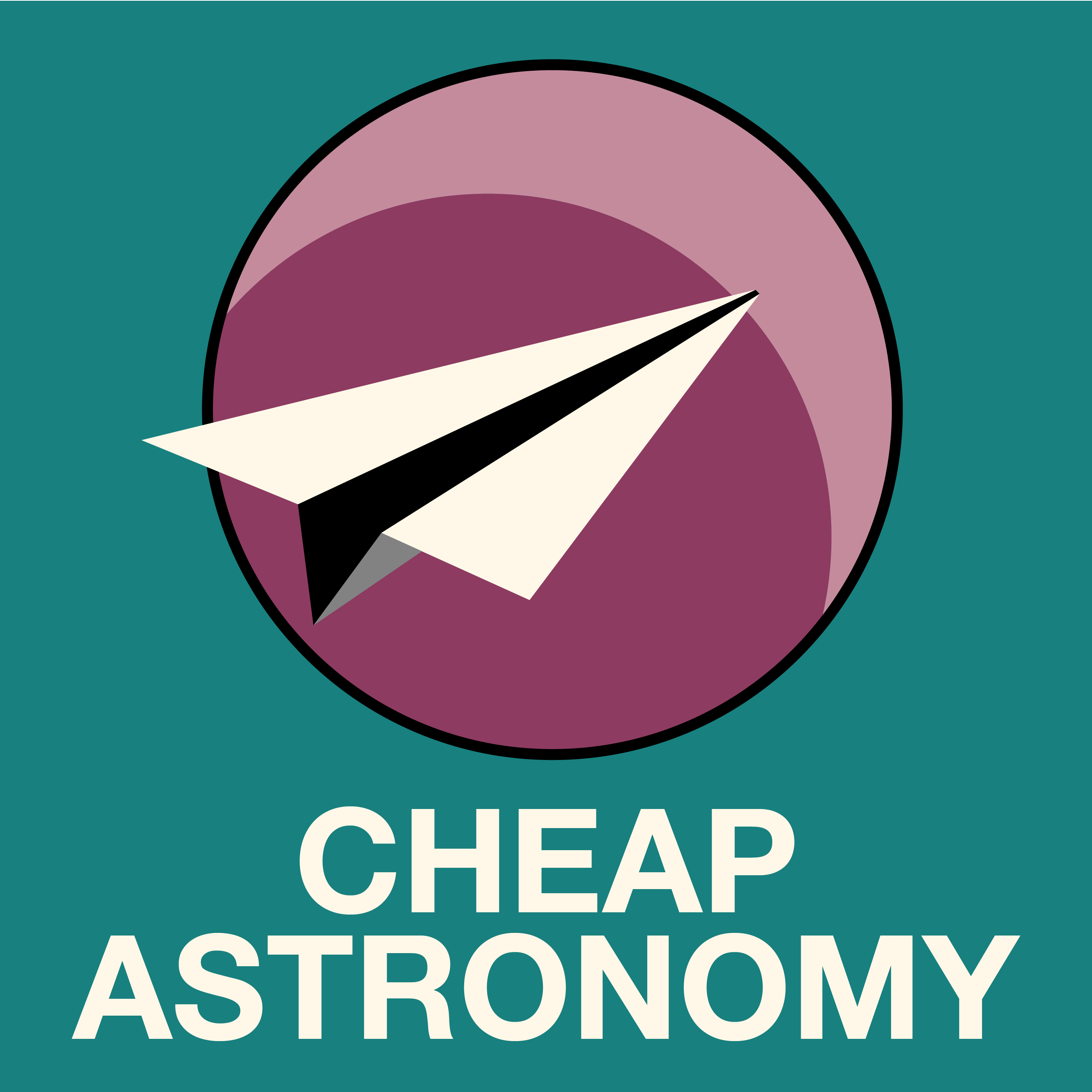
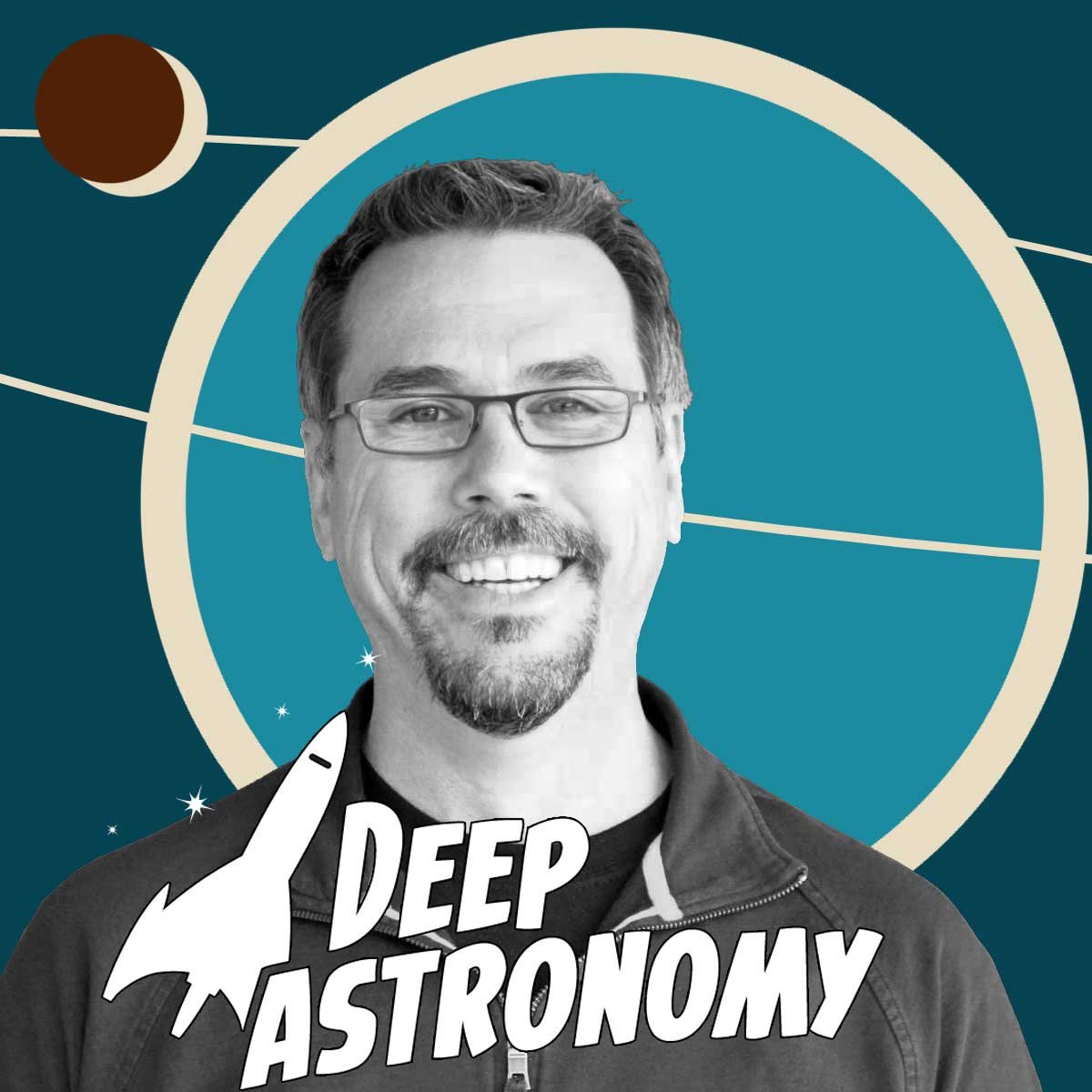
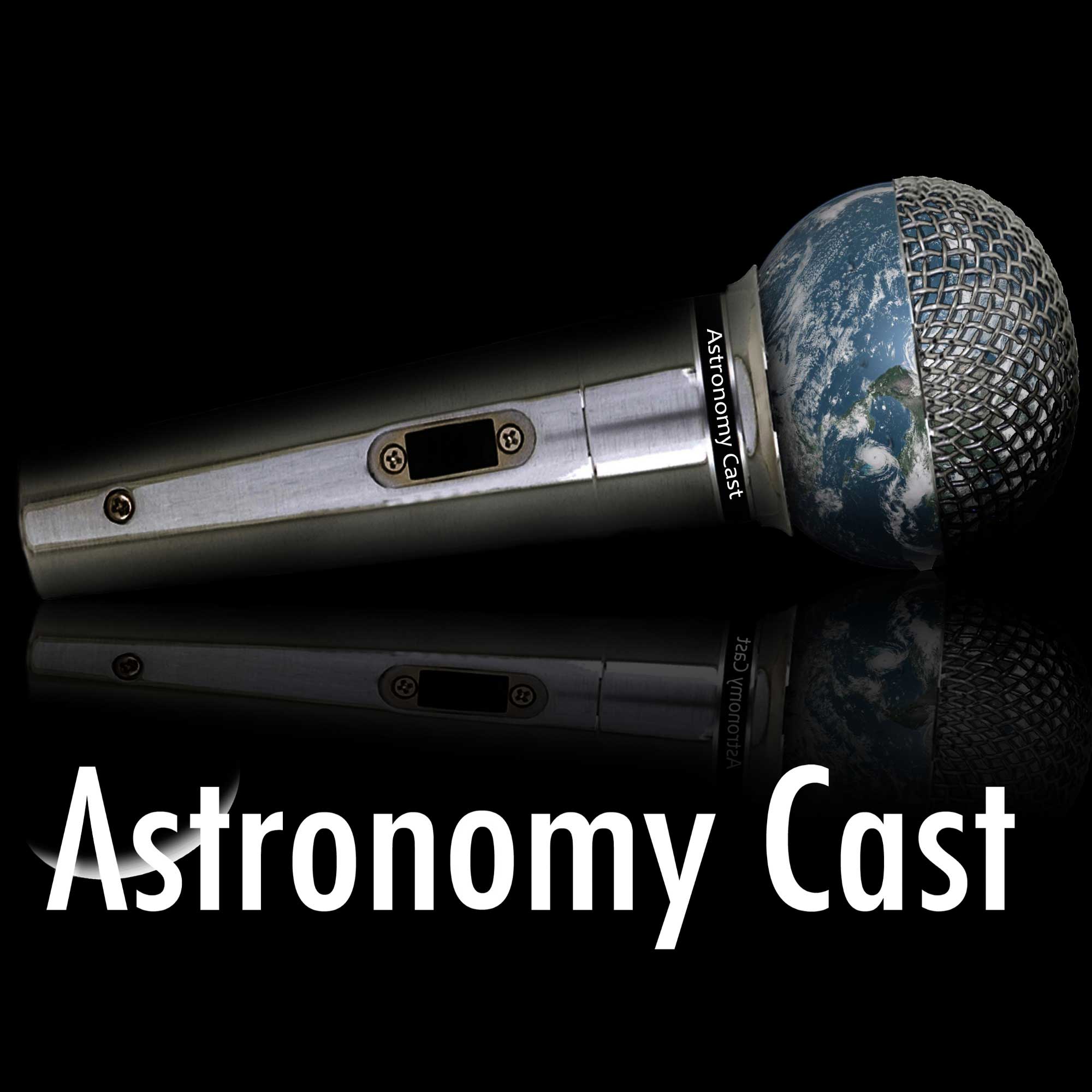
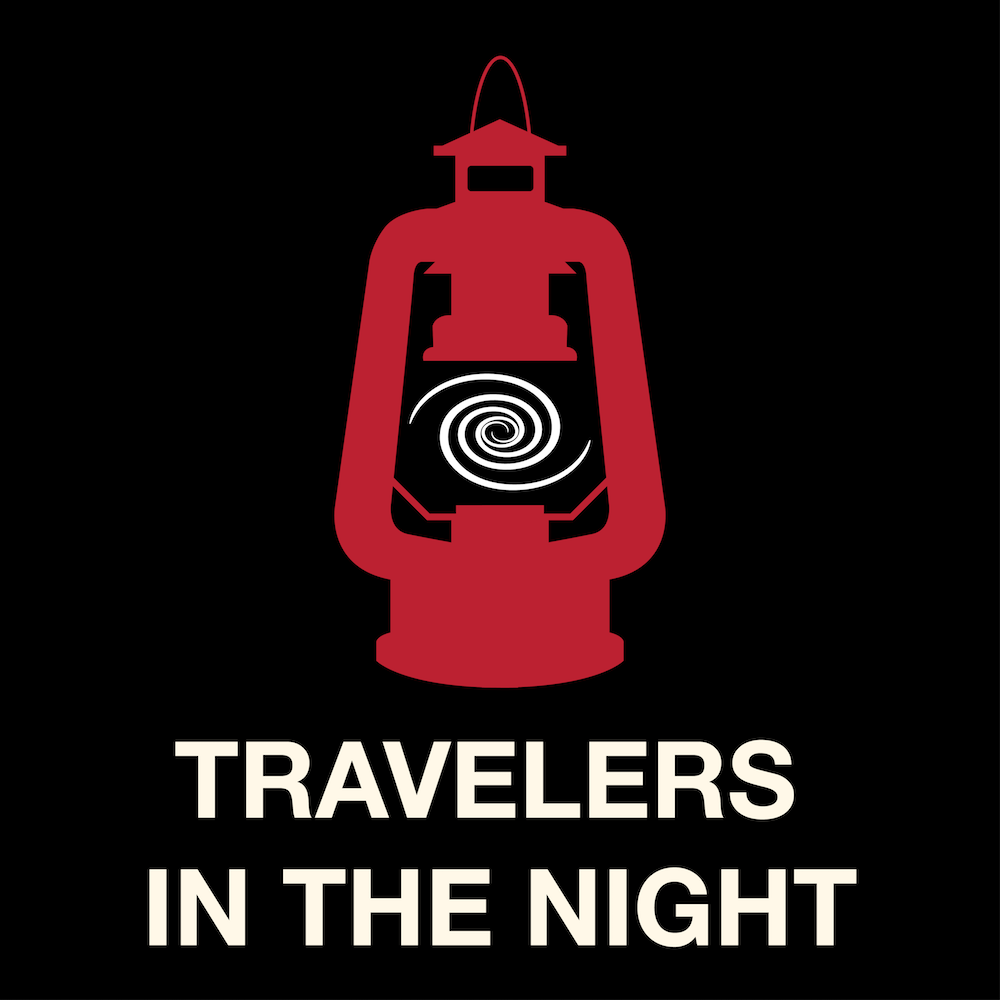


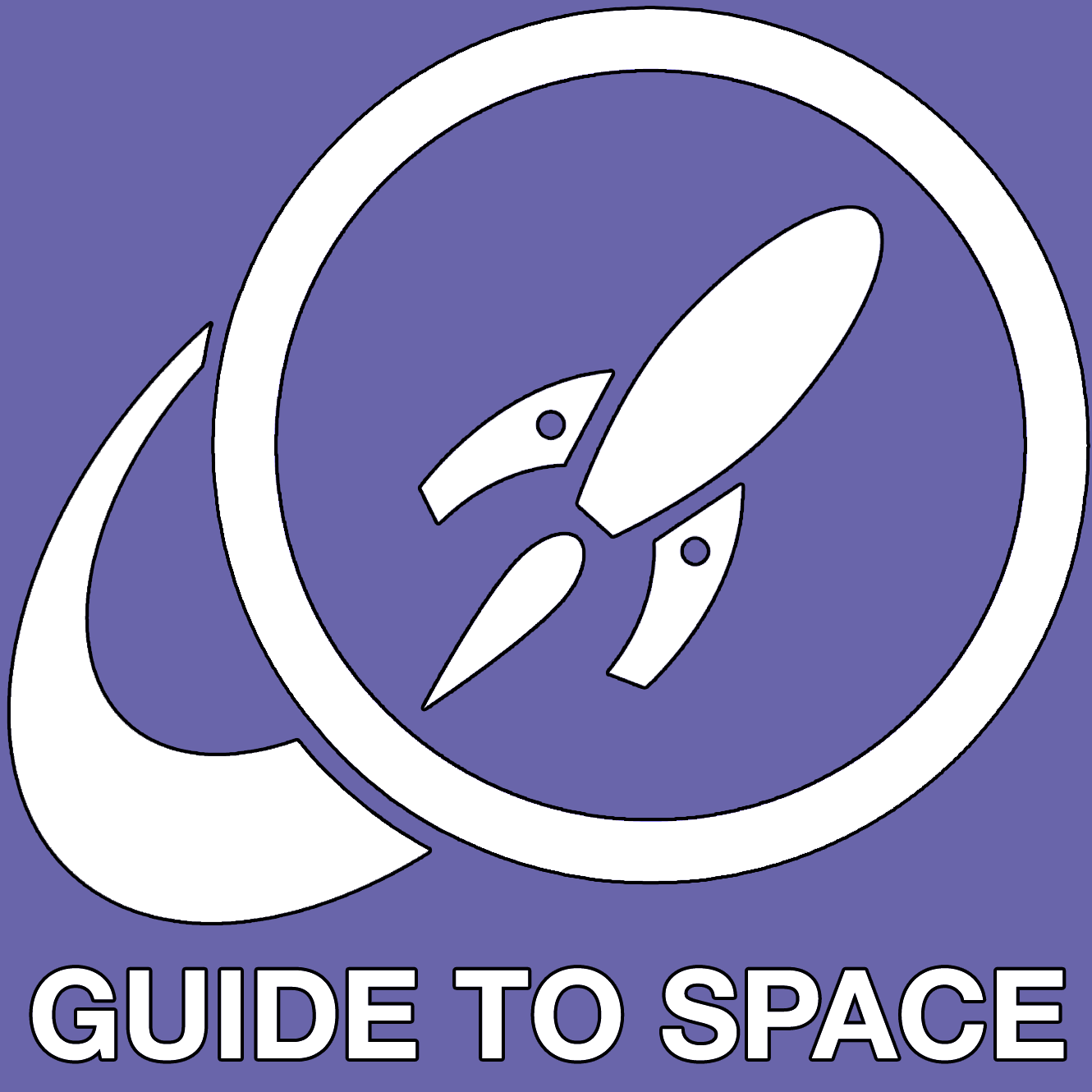




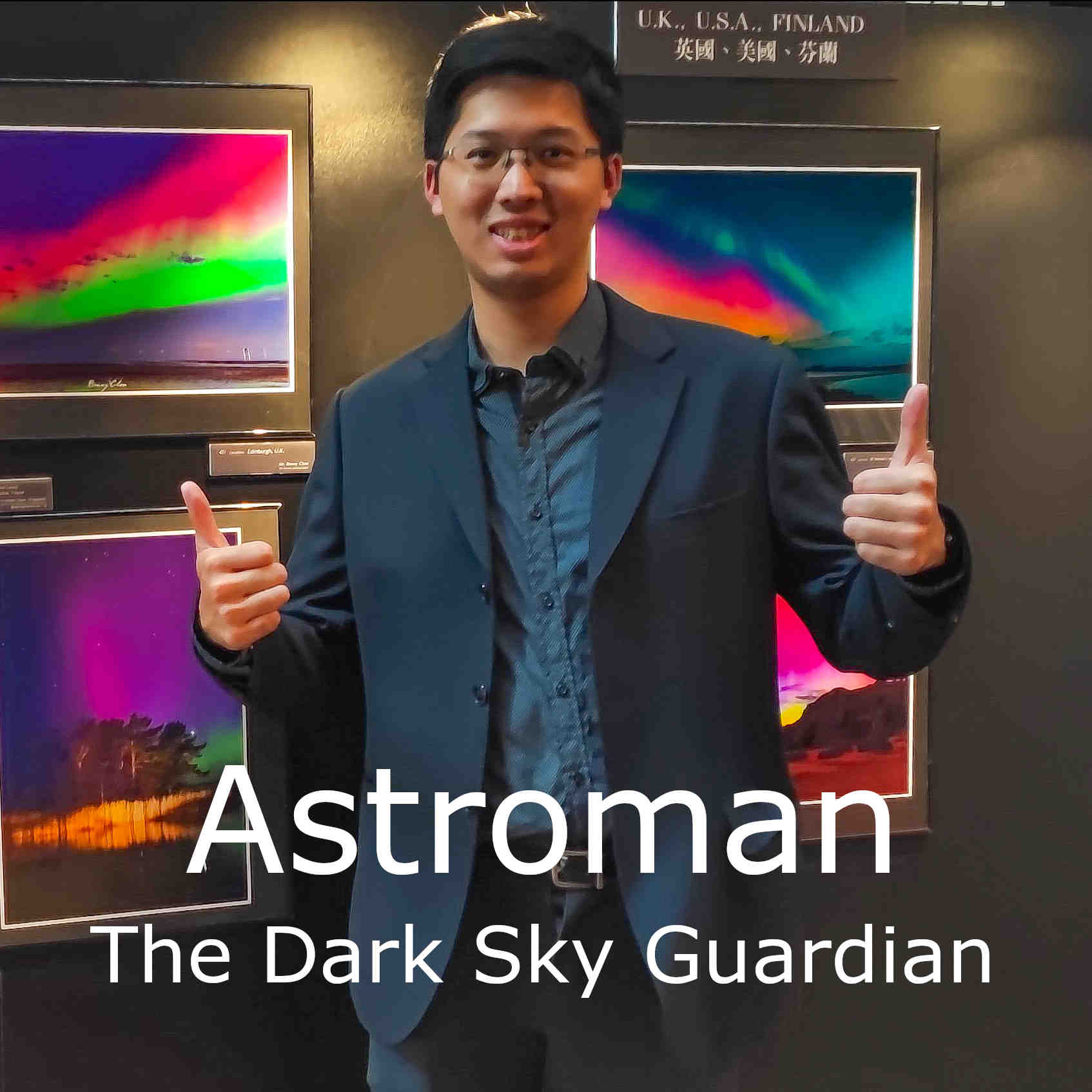
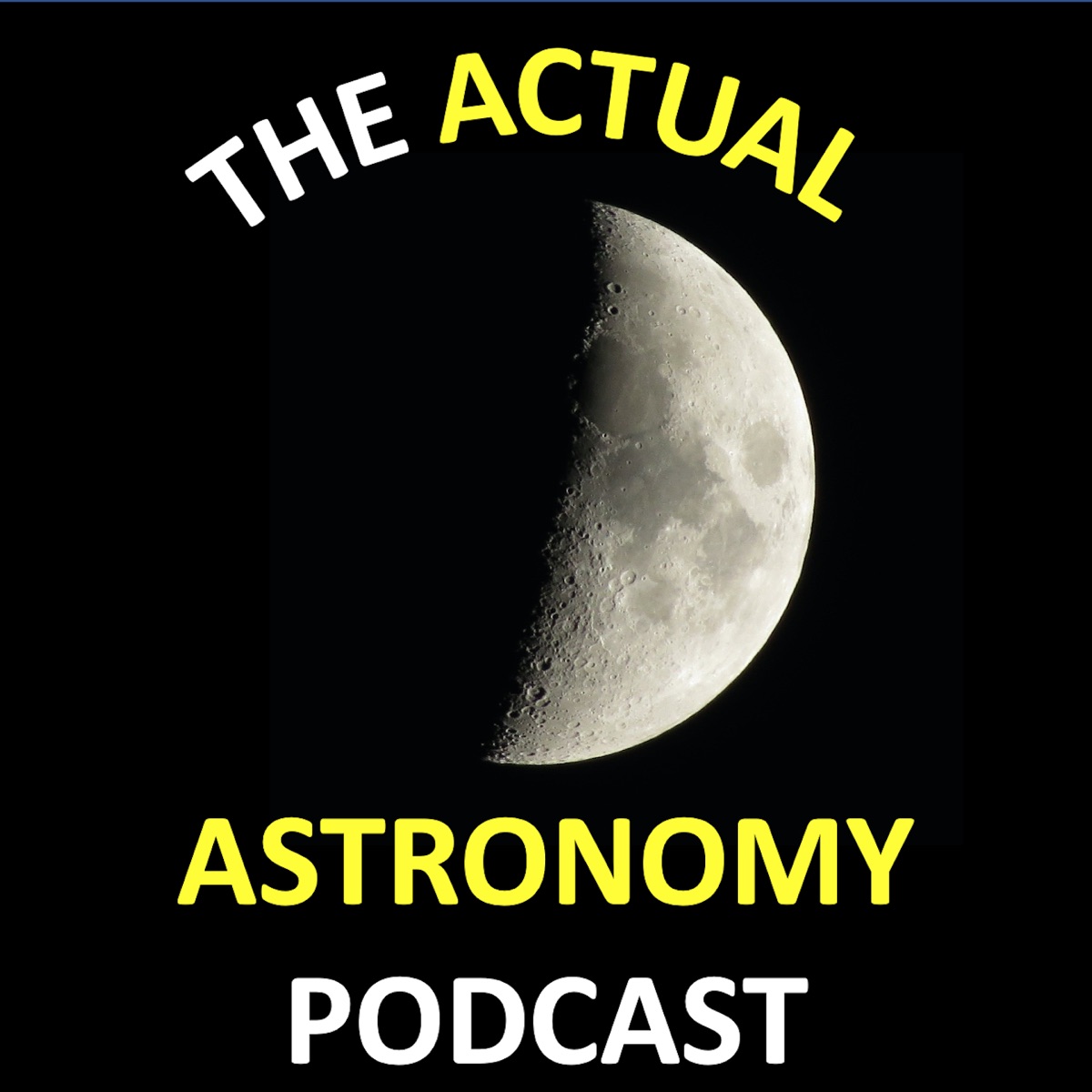








This particular episode needs to be reworked or trashed. Black holes do give up information in the form of Hawkening radiation. Our eyes cannot look at the sun because they evolved to see in a range of daylight that is useful. Light intensity in either side of this brightness and our eyes are not very good and can be damaged by high intensity light whether it is from the sun or not. These people need a qualified editor fact checking like NPR has.
what is a GA?
Absolutely fascinating show Paul 👏
What is the point of saying we are not ready to go to Mars. You obviously have issues getting up in the morning, but you still do.
One of the most enjoyable episodes that I've listened to for a long time 👊
Why are you trying to answer a question on a black hole that no one knows. The answer is we do not know and move on.
Good discussion about pros and cons of using binoculars, but I think the there is a broader reason for being suggested for beginners. Most people have a pair laying around the house that rarely get used and no additional investment required. The other reason is that becoming familiar with the night sky and proximaty to constellations with a telescope can be daunting. Wide field binos are a slam dunk for this. Keep up the good work guys.
on 3d printing in space , what if there are resources in one area and there is a potential for microbiotic life in the same area
re cosmic perspectives isn't the u.s. pulling out of the Paris accords
That voice